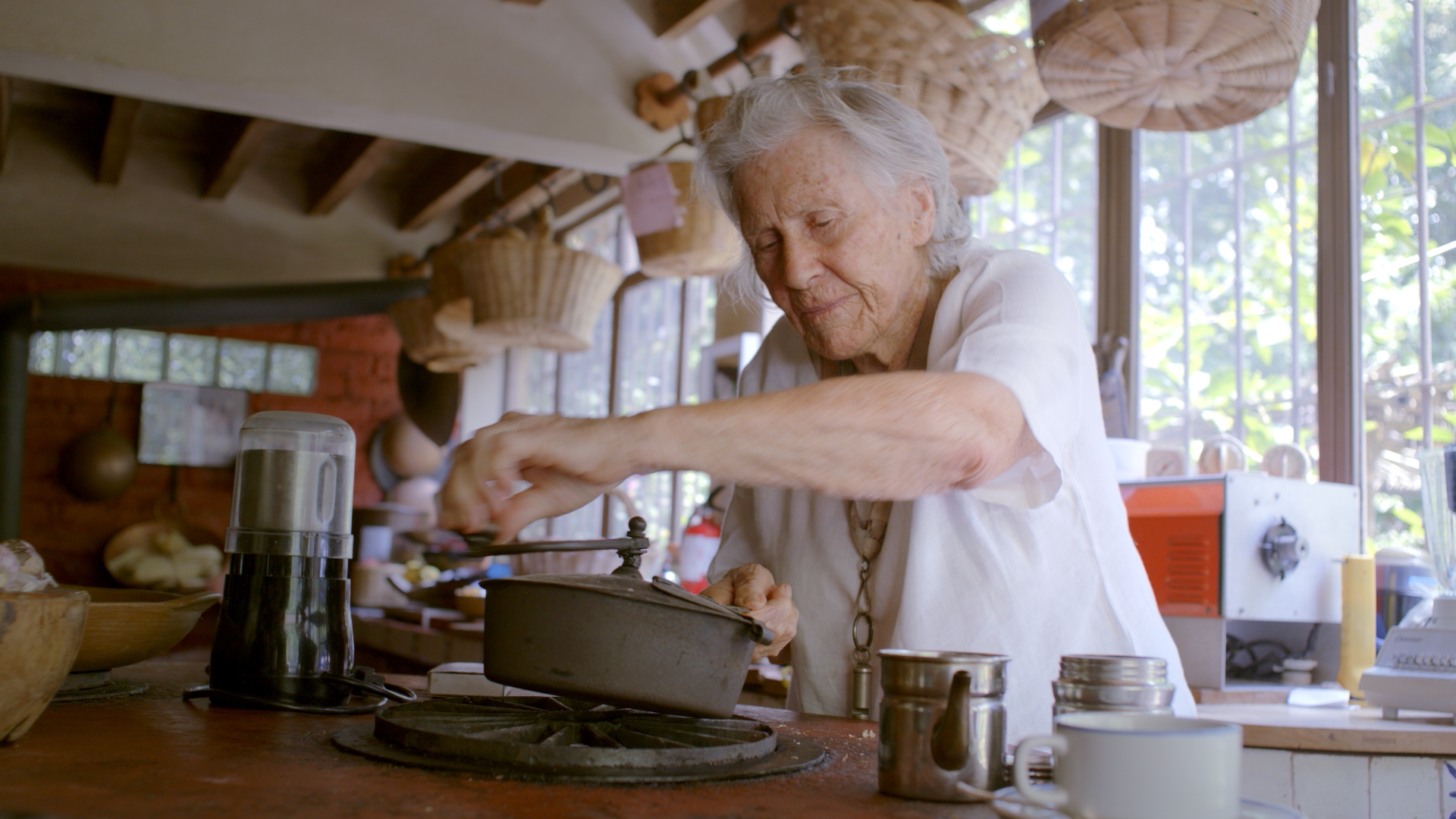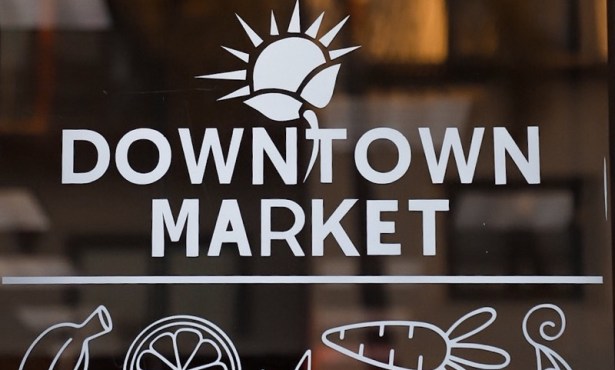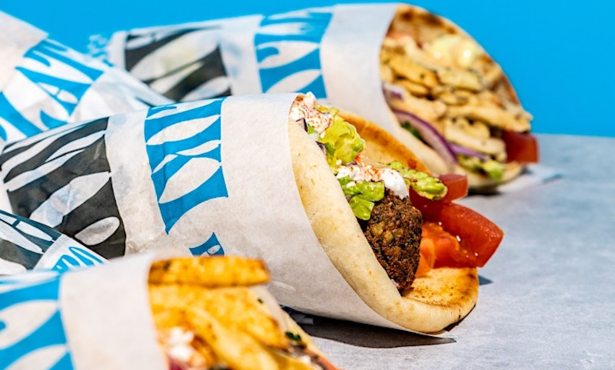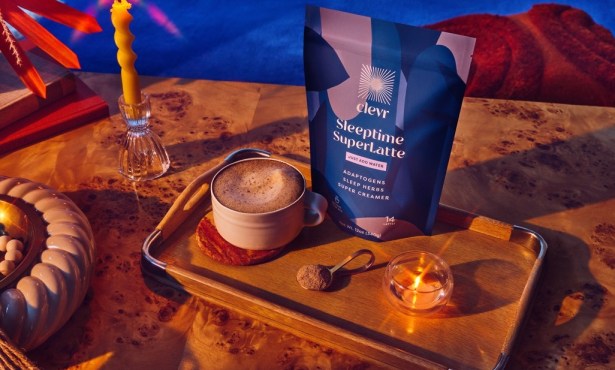Cinema to Savor: ‘Diana Kennedy: Nothing Fancy’
Elizabeth Carroll’s Documentary Shows How a British Woman Became the Champion of Mexican Cuisine

How did a nearly 100-year-old white British woman become the global champion of traditional Mexican food?
Such is the subject matter of Diana Kennedy: Nothing Fancy, a fascinating portrait of this irascible dynamo that’s won accolades at film festivals all around the country. The documentary screens in Santa Barbara for the first time on Saturday, March 14, 4:30 p.m. at the Riviera Theatre as part of the inaugural S.B. Culinary Experience. Tickets are $15. See sbce.events. [Due to public health concerns, the Santa Barbara Culinary Experience has been postponed to March 2021.]
The film’s director, Elizabeth Carroll, answered some of my questions last week.
How did you learn about Diana Kennedy’s story? I was living in Austin, Texas, in late 2013 and wanted to do a project on the matriarchy of Mexican food traditions. I was researching Mexican women to interview and found Diana Kennedy on Wikipedia. I’d been studying food and food people for years and was shocked I’d never heard of her. She wasn’t Mexican, but trustworthy sources were calling her the world’s academic expert on Mexican food.

Extremely motivated to interview her, I spent the next hour trying to find a way to contact her and eventually gave up with no leads. She lives in the middle of the mountains in Michoacán and might not be an emailer, I thought. About 20 minutes later, I went to a local bookstore called BookPeople, pulled into the parking lot, and looked up at the marquee. It said, “Book-Signing with Diana Kennedy Tomorrow.”
I laughed, in complete shock. It was kind of a series of rapid-fire dominoes from there. I immediately knew something bizarrely cosmic and bigger than me was happening.
How long was this in production? It was six years from our first shoot at Diana’s house in early 2014 to the festival premiere at SXSW in 2019.

How did you convince her that you were the right filmmaker to tell her story in a feature-length way? When we met at the book-signing the following night, I introduced myself at the beginning as an interested filmmaker and waited until the very end of the event to talk to her. She said, “You’re still here? What do you want from me?” I said, “I think a lot more people need to hear your voice and know who you are.”
She responded with a minor threat: “Well, somebody tried to do a documentary about me last year, and they screwed me, so I’m suing them.” Not exactly what I wanted to hear. I said, “No pressure. We don’t have to do this.” She replied, coyly, “Well, my friends at the New York Times all tell me I need somebody filming me all the time.” I said, “Can I be that person?” Diana replied, “Can you fund it?” I said, “Of course,” even though I only had about $200 to my name. I figured when you’re handed this rare and special of an opportunity, you have to say yes with confidence and figure the rest out later.
She seems pretty cantankerous. Has that grown with her aging, or was she always that way? I can’t confirm, but other people I’ve talked to have described her as “even more intense” when she was younger. So, take that as you will. In the six years we worked together, she was certainly more energetic at 91, which translated to her being more confident and thus more workable. I think being tired really pisses her off because she never really experienced it until her mid-nineties.

Does she seem to be joyful despite all of her concerns about recipe-stealing, the gentrification of Mexico, and so forth? I wouldn’t describe her as a happy person, per se, but I think she finds small joys in the arts and in her rituals. Cooking, listening to opera, a good movie, a good cappuccino in the afternoon. And in her longtime friendships.
How is she perceived in Mexico today? Are there charges of cultural appropriation? I think the majority of Mexicans who are aware of what she’s contributed to Mexico, especially cooks and chefs, are immensely grateful toward Diana. Interestingly, the cultural appropriation questions seem to come from people who don’t know anything about her and just hear “British woman” and “Mexican food expert” and feel the two phrases are incongruent. I guess I would’ve had a similar reaction at first.
Was it difficult to get the other celebrity chefs to comment on her, or did they jump at the chance to help cement her legacy? Everyone I interviewed was very enthusiastic to cement her legacy, as you say. Alice Waters and José Andrés adore Diana and feel she’s an indispensable piece of culinary history. René Redzepi declined, although I know he loves Diana, saying it should be Mexican people talking about her instead of him. I saw his point on that.

What broader message do you hope this film conveys to the audience? I think it’s an interesting commentary on the nature of authentic passion and drive for something. In the U.S., we are so bogged down with the question of, “What am I going to do with my life?” instead of, “What am I going to do right now?” In the same vein, we say, “This is what I should do” instead of, “This is what I want to do.”
I think Diana’s unwillingness to compromise or bend to any expectations of her while following her truest desires from age 17 to 97 is a rare and liberating concept and an essential takeaway for a capitalistic society that praises and rewards for being a functional cog in someone else’s wheel.
What does she think of the film? She likes it! At first she was a little unsure. I think she just wanted to make sure it gained some measure of legitimacy because she knows she’s worth it.
How is she doing now? She’s 97. She’s definitely tired and seems “over it.” But, as she says, she has her driver’s license until she’s 100 and will decide for herself when her time has come.

Has anyone discussed turning her house into a museum? Has she started a foundation in her name, like Julia Child? She has a foundation, but I’m not sure who’s in charge of it now or what its plans are currently. There is talk of an organization buying her house, but it’s unknown to me. She’s been secretive about it. I hope it will be preserved exactly as it is, because Diana has spent the better part of a century meticulously crafting those sacred surroundings, and that is felt the moment you enter her grounds. Her home is entirely unique and priceless in its current form, and I know she’d like it to stay that way.




You must be logged in to post a comment.